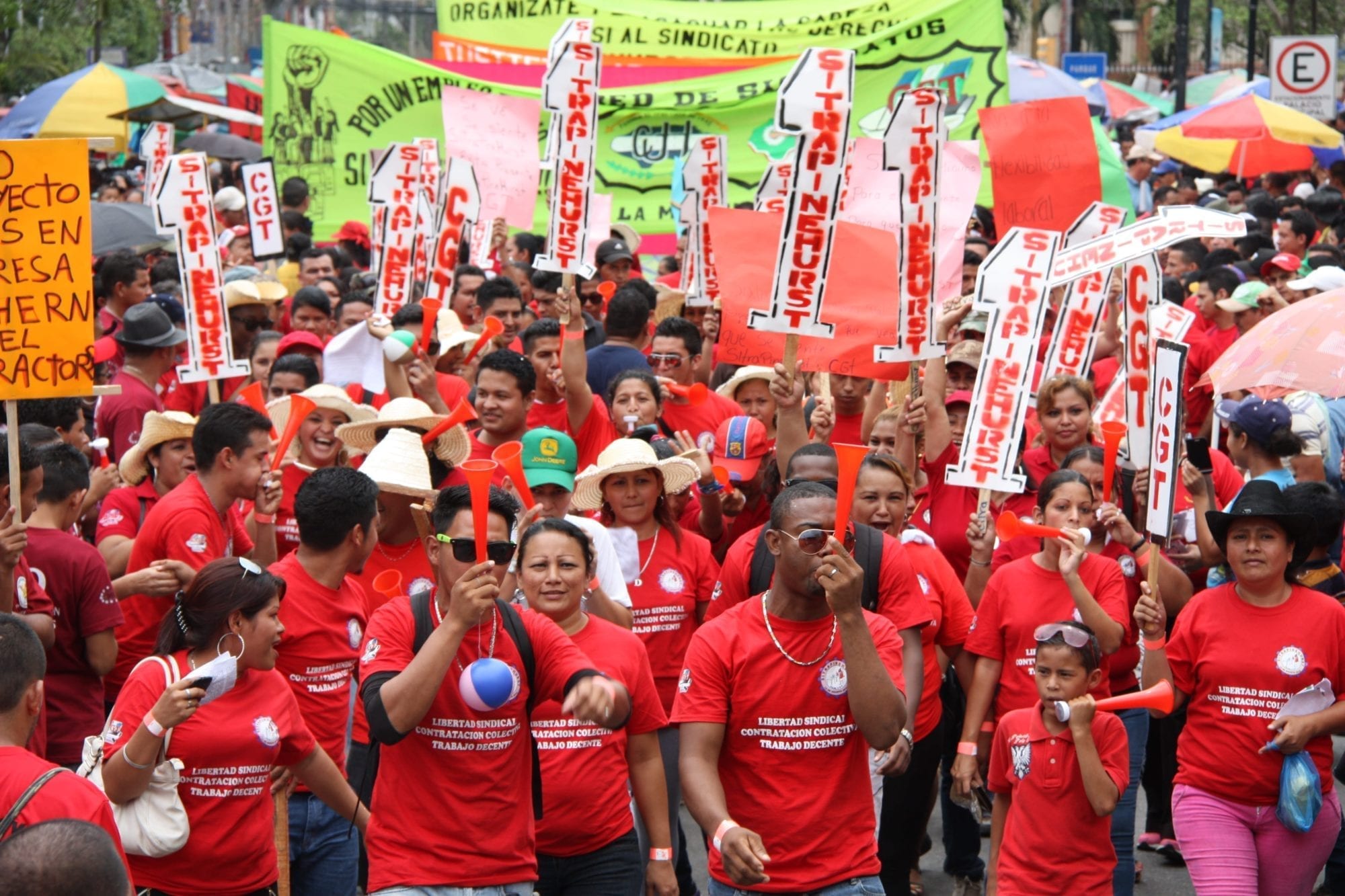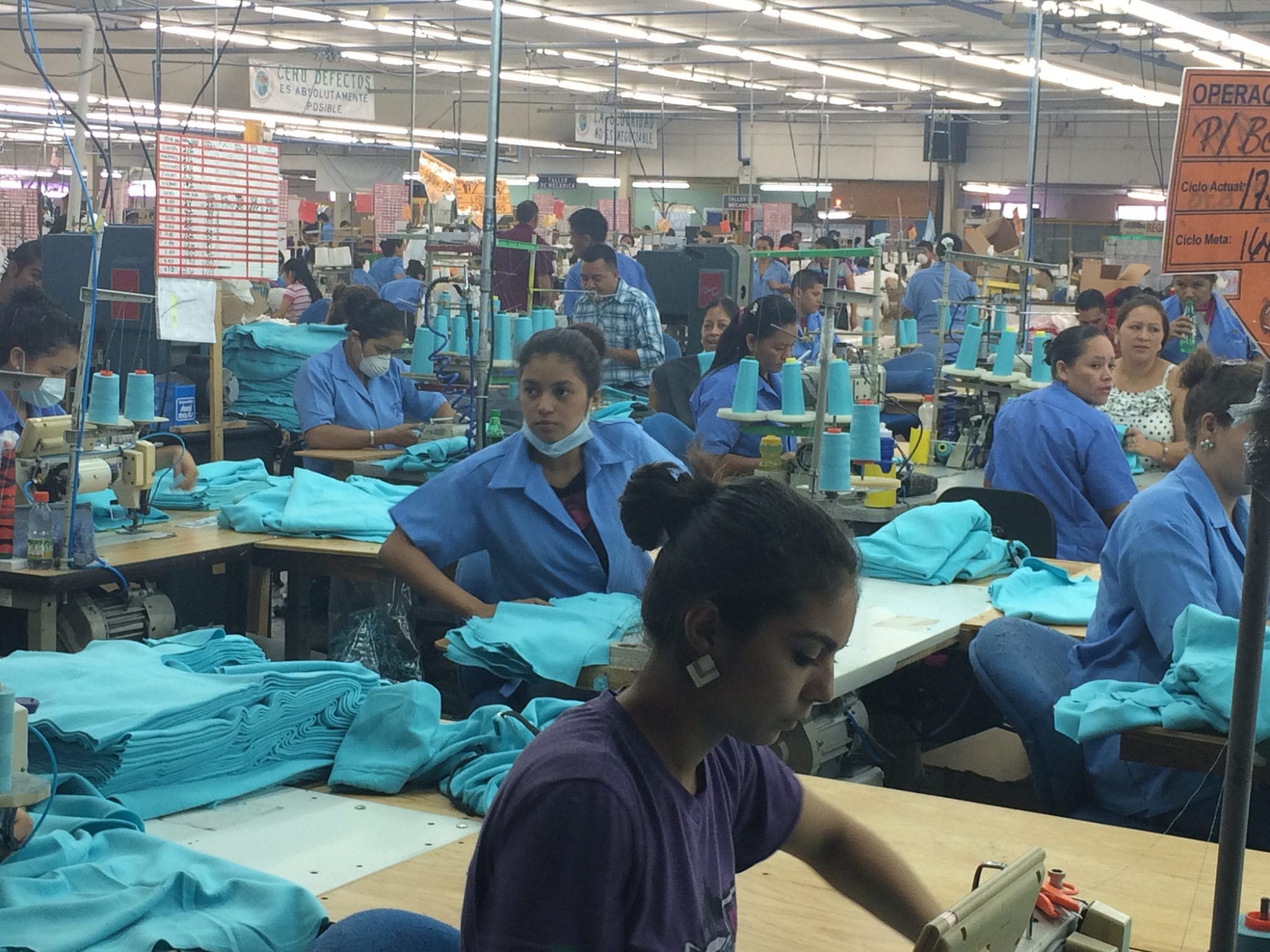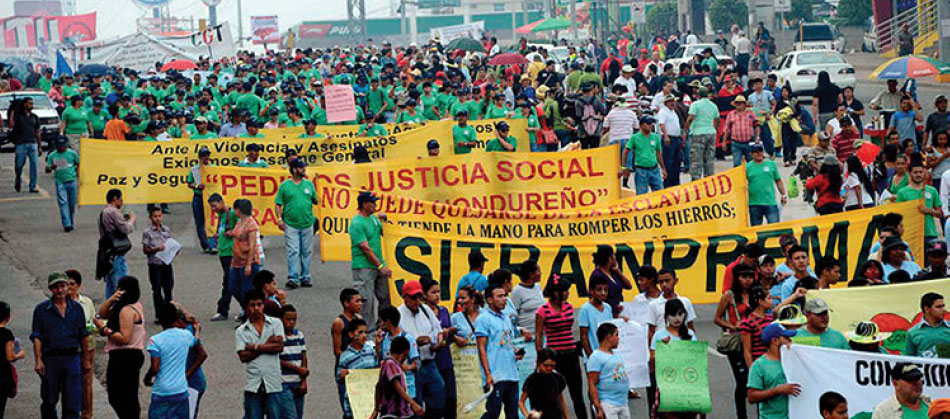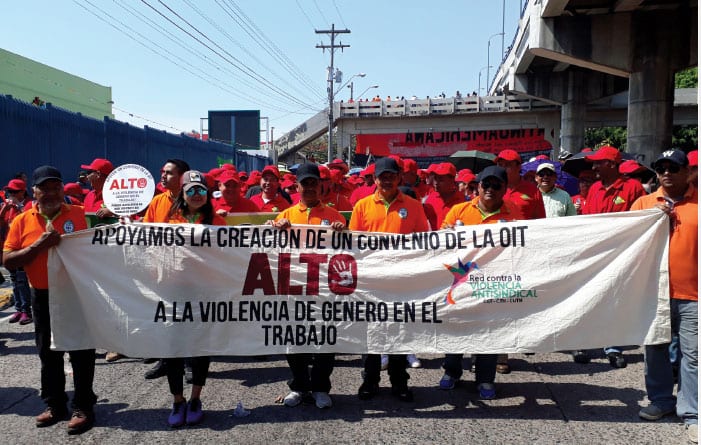A powerful new report shows that collective bargaining changes work and workers’ lives for the better. According to the report, workers in Honduras with collective bargaining agreements are less likely to feel compelled to migrate or to face verbal abuse, and...

Through the Solidarity Center’s women’s leadership development, tens of thousands of workers in Honduras’s garment sector negotiated collective bargaining pacts that significantly boosted wages and provide benefits like educational funds. Credit: Solidarity Center/Stephen Wishart
Dozens of trade unionists have been assassinated in Honduras in recent years, due to their outspoken defense of labor and human rights, and hundreds more injured in violent attacks for attempting to form unions. Most of the alleged perpetrators were public officials, including the military and police, and employers, according to the Anti-Union Violence Network in Honduras, and almost none have been brought to justice.
Agriculture is the largest formal sector employer in Honduras, and the Solidarity Center partners with the agro-industrial workers’ union federation FESTAGRO and its affiliated unions to build union organizing outreach among workers on palm oil, banana and other export crop plantations. Another important sector, domestic work, employs more than 100,000 workers in Honduras. In 2020, the Solidarity Center played a key role in the founding of the country’s first union for domestic workers, SINTRAHO.
Through the Solidarity Center’s women’s leadership development and organizing process, complemented by strategic alliances with consumers and campaigners abroad, 20 of the 27 union organizations in Honduras’s garment sector, representing tens of thousands of workers, have negotiated collective bargaining agreements that significantly boost wages and provide benefits like free transportation to and from work and educational funds for workers and their children.
The Solidarity Center works also with partners such as FESTAGRO and the Federación de Sindicatos de Trabajadores Textiles Maquila y Similares de Honduras (FESITRATEMASH) in the apparel sector to assist in developing strategies to address sexual harassment as an occupational safety issue. These unions have achieved framework agreements with global brands to combat sexual harassment, and created leadership programs for women workers to reverse the embedded exclusion of women from union leadership prevalent across the region.
Despite Threats, Honduran Union Leader Sees Hope in Solidarity
In Honduras, where union leaders are targeted with violence and even murdered for trying to form unions and improve workers’ lives, Darlin Oviedo, president of the apparel union SITRAJASPER (the Union of Workers of the Jasper Company), recognized the signs that he...
Report Documents Anti-Union Violence in Honduras
Two union leaders in Honduras were murdered in 2019, and dozens more physically attacked, threatened and harassed for their activism in advocating worker rights, according to the just-released report, The Price of Defending Freedom of Association: A Report on...



